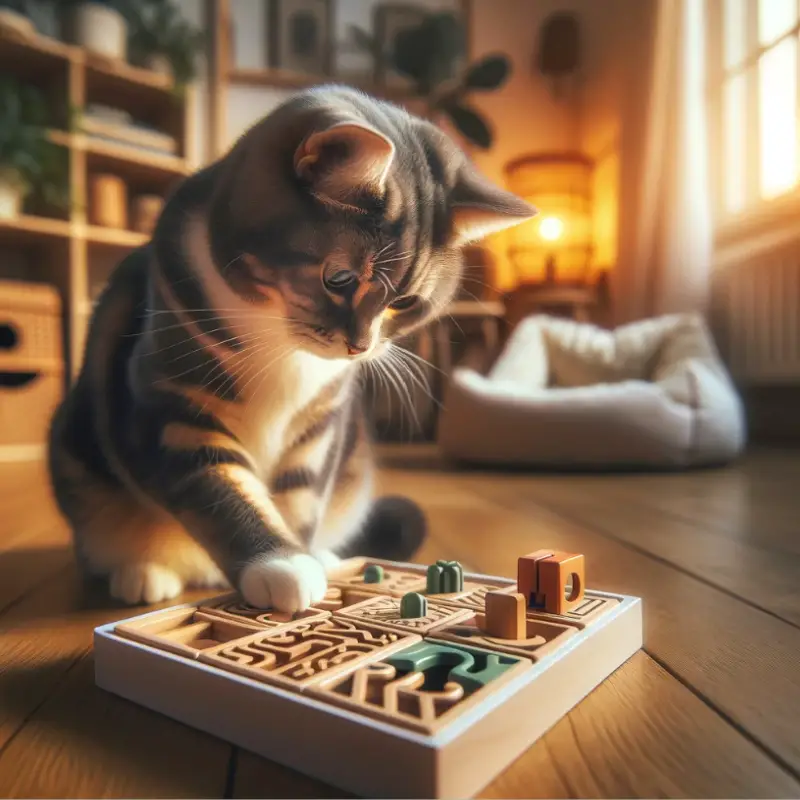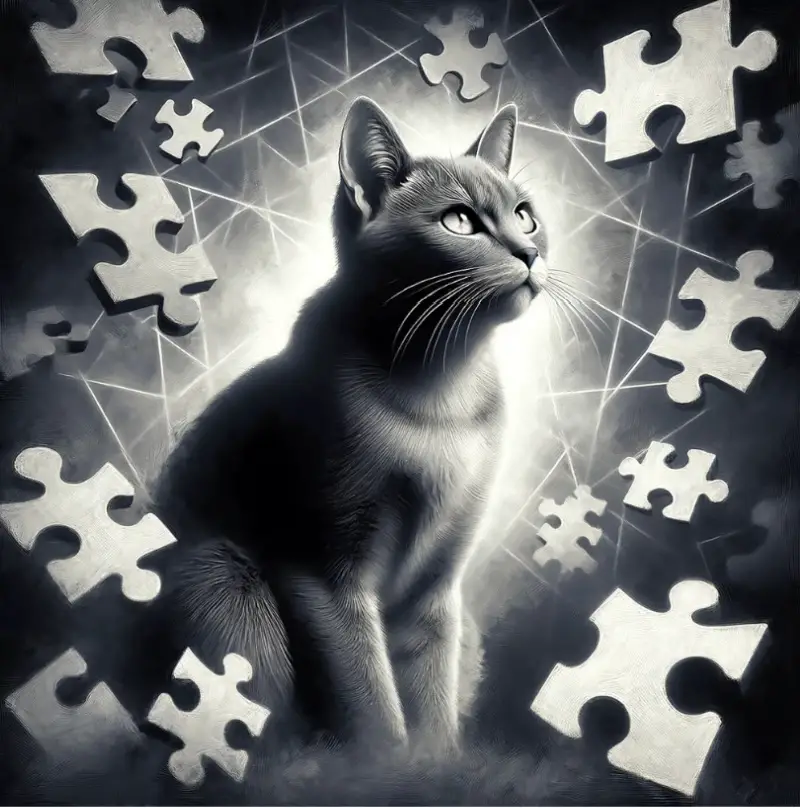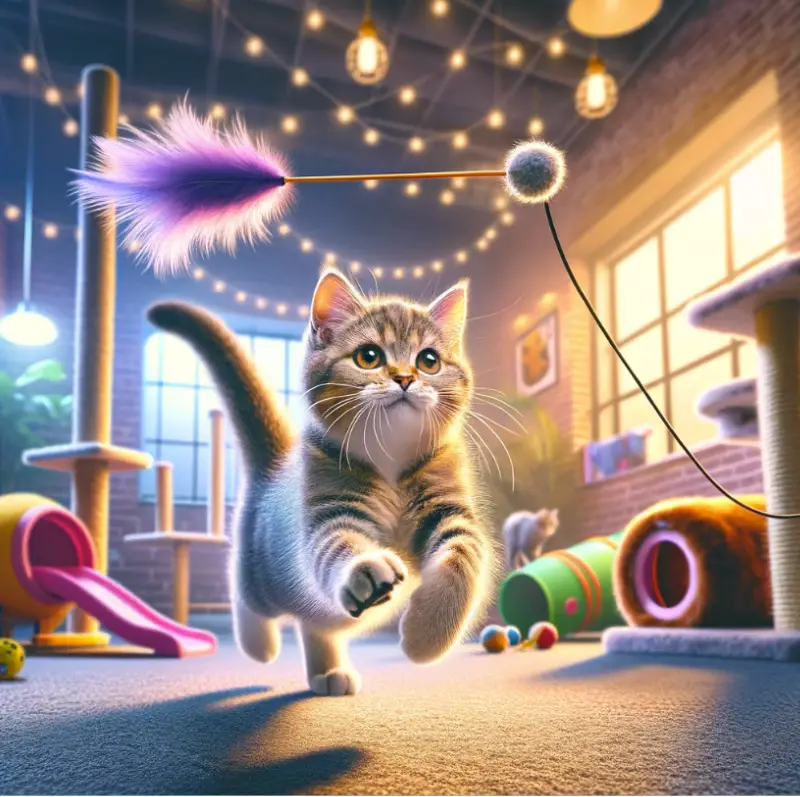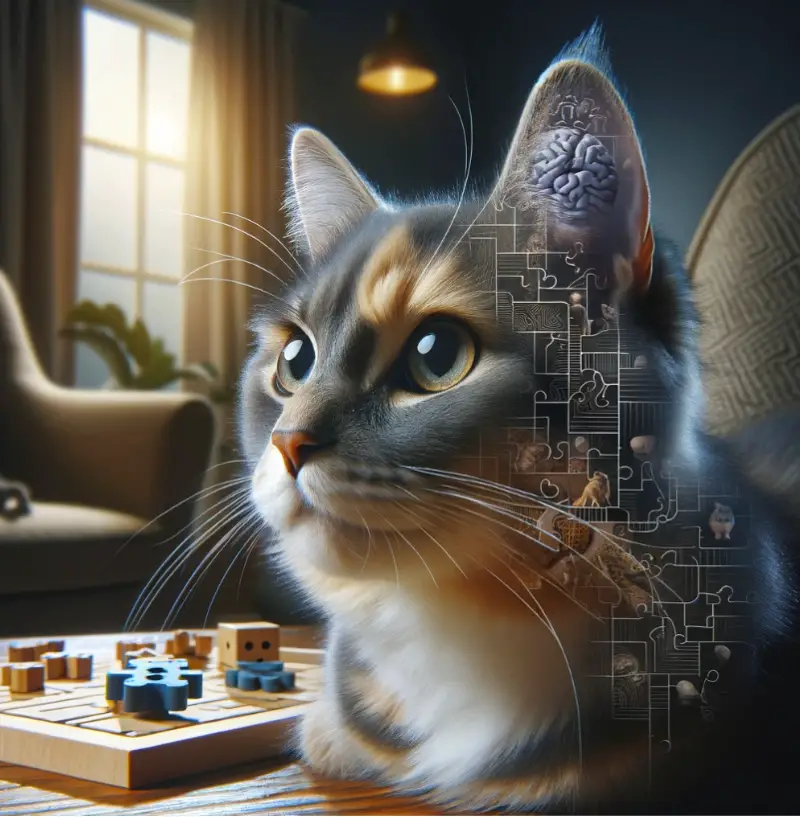Cats, with their mysterious aura and inscrutable behaviors, have captivated us mere mortals for centuries. Often perceived as aloof and independent, these enigmatic creatures have sparked a curiosity about what goes on in their minds. Recent scientific advancements have begun to unravel the complexities of feline cognition and intelligence, offering a glimpse into the inner workings of our feline friends.
The Puzzling World of Feline Intelligence
Cats, unlike dogs, evolved as solitary hunters, which has significantly shaped their cognitive abilities. Their intelligence is tailored more towards solitary problem-solving and survival skills rather than social interaction. This difference often leads to the misconception that cats are less intelligent than dogs; however, their intelligence is simply different, not inferior.
Problem-Solving Prowess
Cats are excellent problem solvers. A study published in the journal ‘Animal Cognition’ demonstrated that cats could solve complex puzzles to access food. This ability to manipulate their environment to meet their needs is a clear indicator of their practical intelligence. Another aspect of their problem-solving skills is their adeptness at learning through observation, a trait they share with humans and other primates.
Memory: A Key to the Past
Cats have a remarkable memory, especially when it involves their own survival and well-being. They can remember the locations of food sources, the presence of potential threats, and the layout of their territory. This spatial memory is crucial for a solitary predator. Cats also have a form of episodic memory, allowing them to recall specific events from their past, as shown in studies where cats demonstrated the ability to remember people and places.
Social Intelligence: Understanding Bonds and Hierarchies
While traditionally thought to be solitary, recent studies have revealed that cats possess a nuanced form of social intelligence. They develop complex social structures when living in groups and can form strong bonds with humans and other animals. Cats communicate through a sophisticated system of vocalizations, body language, and scent markers, indicating a high level of social awareness.
The Feline Mind at Work: Insight from Research
Recent research has shed light on the capabilities of the feline brain, challenging previous assumptions about cat intelligence.
Learning and Adaptation
Cats learn through a combination of observation, trial and error, and conditioning. They are quick to adapt to new environments and can learn to manipulate objects to receive rewards, demonstrating both cognitive flexibility and innovative thinking.
Emotional Intelligence
Cats are often thought of as having a limited range of emotions. However, research suggests that they experience a wide spectrum of emotions, from happiness and affection to stress and fear. Their ability to read human emotions and respond appropriately further highlights their emotional intelligence.
Sensory Perception: A Window to the World
A cat’s sensory perception is finely tuned. Their vision, hearing, and sense of smell are highly developed, allowing them to process and respond to their environment in ways humans cannot. This heightened sensory perception plays a crucial role in their cognitive processes, informing their decisions and actions.
Debunking Myths: The Truth About Cat Intelligence
Common myths about cat intelligence often stem from misunderstandings of their unique cognitive style. Unlike dogs, cats are not pack animals and therefore do not seek approval or follow commands in the same way. This independence is often mistaken for stubbornness or lack of intelligence.
The Curious Cat: Exploration and Play
Cats exhibit a strong drive for exploration and play, behaviors that are closely linked to intelligence. Play is not only a form of exercise but also a way for cats to practice their hunting skills and stimulate their minds. Their curiosity and playfulness are key indicators of their cognitive abilities.
The Future of Feline Cognition Research
The field of feline cognition is still in its infancy, with much left to explore. Future research promises to delve deeper into the mysteries of the feline mind, offering new insights into how cats think, learn, and perceive the world around them.
Advancements in technology such as brain imaging techniques and behavioral studies are opening up new avenues for researchers to gain deeper insights into the cognitive processes of cats, promising exciting discoveries in the years to come.
Summary
The intelligence of cats is as complex as it is fascinating. Their cognitive abilities, shaped by their evolutionary history, are tailored to their unique way of life. As we continue to study and understand the inner workings of the feline mind, we not only deepen our knowledge but also strengthen the bond we share with these remarkable animals. The world of feline cognition is a testament to the intricate and sophisticated nature of cat intelligence, forever challenging our perceptions and enriching our lives with their mysterious charm.











Cats are brilliant, beautiful, fascinating, creative, intelligent, perceptive, healing, resourceful, brave, bold, kick-ass, VERY amusing (and enjoying being so). They are the most perfect Creature on this Earth (and probably elsewhere). They are so perfect they haven’t even bothered to evolve in all the time humans have been interacting with them!
Another fantastic article. I am so happy you are sending us links to these articles. I find them fascinating and full information. I have learned a lot and look forward to the next one. And on top of all of that, the picture are simply magnificent – just breathtaking. Thank you!!!!!